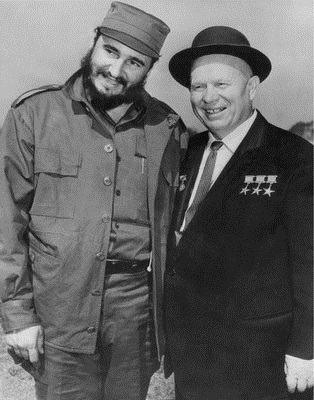Philosophy and Religion, Part 10b
Power to the People!
The late South African
revolutionary Ron Press provides a very good stepping-off point from our course
because he shows clearly where the open end of this study is located. In the
next proletarian revolution we must have what the Bolsheviks did not have,
which is a clear philosophical theory of how society is going to work without a
state. We are still looking for such a theory.
In “New Tools for Marxists”
(download linked below), Ron Press wrote:
‘“…the
standard Marxist idea that society passes in a linear manner from primitive
communism via class struggle to the ultimate victory when the working class
replaces capitalism with a classless society is an unattainable myth. Especially when a classless society was taken
to mean the establishment of order and stability, in fact stasis. The theories [outlined
above] indicate that stasis means the inevitable sudden crossover into chaos
and collapse.
‘Lenin in “State
and Revolution” continued the work of Engels and Marx in outlining the
parameters which form the basis for the definition of systems indicated by
points (a) and (b). It is interesting that they did not define the form or
structure which socialism will have. Lenin recognised these new structures when
they emerged. He initiated the slogan “all power to the soviets”.’
Ron Press is saying that the
theory of the State, and of the “withering away” of the State, in Marx, Engels
and Lenin is not wrong, yet these three revolutionaries did not have the full
theoretical means to appreciate in full how “stateless” systems can, and
already do, work in nature and in human society.
A “stateless” self-balancing system
The revolutionaries of today
have an advantage over those of a century ago. That being the case, we might
imagine a “State and Revolution” for today, that would include not only the
material that Lenin would have included in 1917 if he had had the time, but
also material that Lenin would have included in the intervening period up to
the present time, if he had had the knowledge of it.
Ron Press’s article gives a
good start for that work. Please download it and read it. The diagrams above,
relating to the “Strange Attractor” of Chaos Theory, and to the
stability-anarchy self-correcting system, are from the article.
The matter sits like this: In
the past, “stateless” ungoverned systems could be postulated but not described
or fully imagined. The “withering away of the state” remained a somewhat
mystical and to its opponents, ridiculous concept. But now, because of the
theoretical advances that Ron Press shows us, it can be seen that most systems
(both human and natural) operate in fact without a “state” (or king, for that
matter) and that the “state” is the exception, not the rule in human society.
Further, the imposition of a “state”, far from being the guarantee of order,
is, according to chaos theory, the certain harbinger, not of stability, but of
disorder.
This is an unexpected
vindication of Marxism, but a highly useful one. It means that future
revolutionaries will have the possibility to see much further forward than was
the case in Lenin’s time.
·
The above is to
introduce the original reading-text: New tools for Marxists, 1995, Ron
Press.













